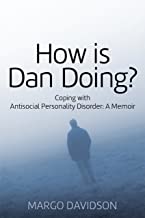Sociopathy-Antisocial Personality Disorder
Cluster Number:
Wiki Number: PW209
Diagnosis: Sociopathy-Antisocial Personality Disorder
US Patients: 1.8% during a year
World Patients:
Sex Ratio: B3;G
Age Onset: age 10, before or after
Brain Area: high testosterone, low cortisol; lower serotonin, higher impulsiveness; less gray matter. Low prefrontal cortex acts
Symptoms: disregarding or violating others’ rights; exploit others with arrogance but no remorse;charming but impulsive ; con artists
Progression: frequently addicted; high crime rates with premeditated aggression; become dangerous burdens to families; aggressive in prisons
Causes: ADHD, oppositional defiant-disorder (ODD), genetic, birth-family environment, criminal and suicidal
Medications: no FDA approved medications for treatment; antipsychotics, antidepressants, mood stabilizers may reduce symptoms
Therapies: with little remorse, don’t typically cooperate with therapies, unless restrained by others
Youtube Video: 10 Signs You’re Dealing with a Sociopath
Amazon or Library Book: How Is Dan Doing?
Coping with Antisocial Personality Disorder: A Memoir
Click the book to link or order from Amazon.

